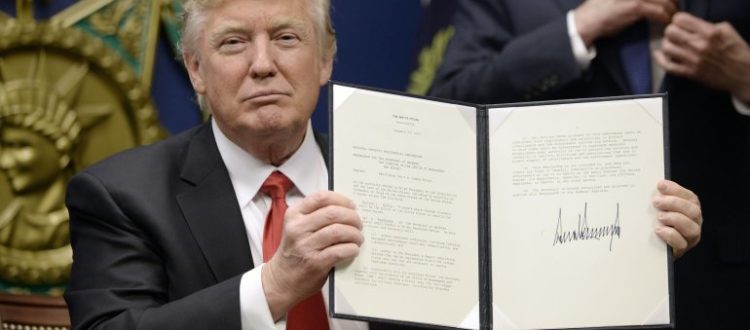PAAIA Files Refugee Supplement to Lawsuit Challenging President Trump’s Travel Ban 3.0
Lawsuit Argues Trump’s Executive Order Targets Refugees from 11 Predominantly Muslim Countries, Despite Pledges to End Ban
Iranian-American Organizations and Individual Plaintiffs File Supplement to Lawsuit Challenging Trump’s Travel Ban 3.0
For Immediate Release:
Contact: Aurora Matthews
Phone: (301)-221-7984
Washington, D.C. (October 27, 2017) – Three prominent Iranian-American organizations and 16 individuals have filed legal papers challenging President Trump’s October 24th Executive Order, which they argue targets refugees from Iran and 10 other African and Middle Eastern countries. The papers are a supplement to the Motion for Preliminary Injunction the groups filed earlier this month against the Trump Administration’s Travel Ban 3.0.
“Packaged as an end to the Trump Administration’s refugee ban, in fact, this Executive Order is the precise opposite: It’s a plain and insidious effort to carry out Trump’s promises for a Muslim ban, targeting refugees from 11 Middle Eastern and African countries,” said Cyrus Mehri, founding partner of Washington, DC-based firm Mehri & Skalet, PLLC, who represents the plaintiffs.
On October 24, the Trump Administration issued a new Executive Order, which it released alongside a DOS/DHS/DNI memorandum, initiating a new 90-day review period of its refugee program. During this time, according to the memo and Order, the United States will prioritize refugee applications for those who are not nationals of 11 countries.
While the Administration has not officially named the 11 countries referred to in the Memorandum, all reporting points to the fact that Iran is one of the 11 countries, and that the other countries are all in Africa and the Middle East. During these 90 days, refugees from the 11 countries will be admitted only on a “case-by-case basis” if their admission is deemed to be “in the national interest” and “pose no threat to the security or welfare of the United States.” In effect, this is a ban on refugees from Iran and the other 10 countries for the next 90 days. And because the Trump administration has determined that the United States will only admit 45,000 refugees this fiscal year, no Iranian refugees, nor any refugees from the other named countries, will be admitted to the United States for at least another full year.
The October 24 Executive Order thus denies sanctuary to three individual Plaintiffs in the lawsuit: Reza Zoghi, an Iranian political dissident who, after multiple periods of imprisonment and torture, fled Iran with his family; Jane Doe #8, a lesbian refugee who fled Iran after experiencing repeated sexual assault; and Jane Doe #9, a transgender refugee who fled Iran after experiencing sexual assault and being expelled from school.
When read in conjunction with the September 24 Proclamation as it must be, it is plain that the October 24th Executive Order is an effort to keep carrying out Trump’s promises to enact a Muslim ban.
“The Administration’s September 24th Executive Order, its 3rd attempt at a travel ban targeting Muslims, inflicts the same harm as the last two versions. So does the October 24th proclamation, which targets vulnerable refugees,” the organizations said in a joint statement. The President’s September 24 Proclamation, among other things, indefinitely bans all immigrant and almost all nonimmigrant visas to Iranian nationals and bans all immigrant visas and many non-immigrant visas to the nationals of five other majority-Muslim nations, which two courts have already determined violates either federal law or the U.S. Constitution.
The three organizations – Pars Equality Center, Iranian American Bar Association and Public Affairs Alliance of Iranian Americans (PAAIA) – along with individual plaintiffs, previously challenged the Trump administration’s first, second, and third Travel Bans. In May, federal judge Judge Tanya S. Chutkan issued an order indicating that she was seriously troubled by the government’s actions but would not step in unless the injunctions that were active at the time were rolled back. Plaintiffs now seek protection for refugee applicants harmed by the October 24 Executive Order.
Pars Equality Center, the Iranian American Bar Association and the Public Affairs Alliance of Iranian Americans as well as the individual plaintiffs filed this case on February 8 and amended it on March 15. The plaintiffs are represented by the civil rights law firm Mehri & Skalet, PLLC, the Lawyers’ Committee for Civil Rights Under Law, and Arnold & Porter Kaye Scholer, LLP.
The supplemental motion, along with previous filings, media and other information, can be found at endthetravelban.com.
###

